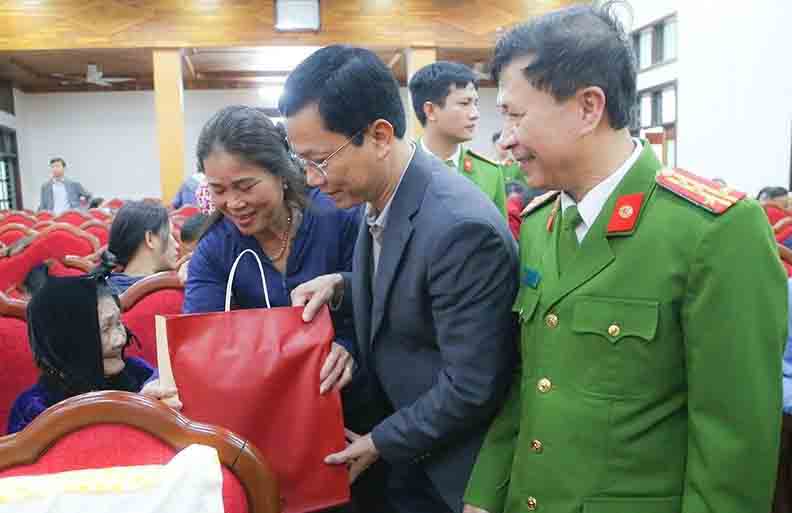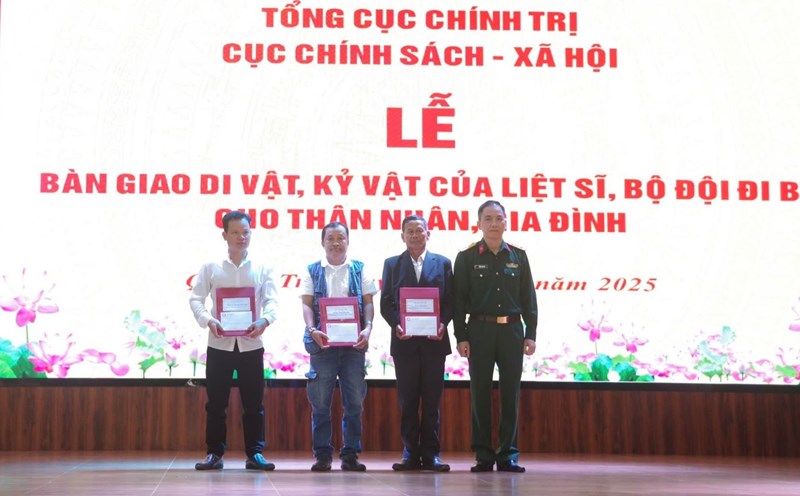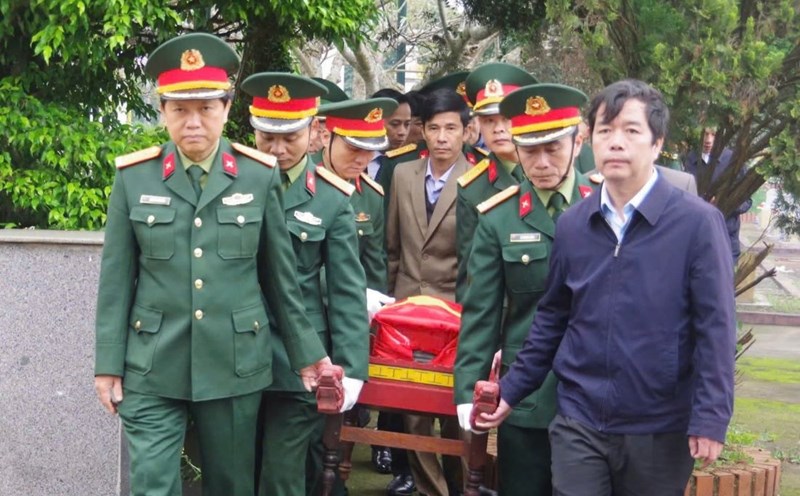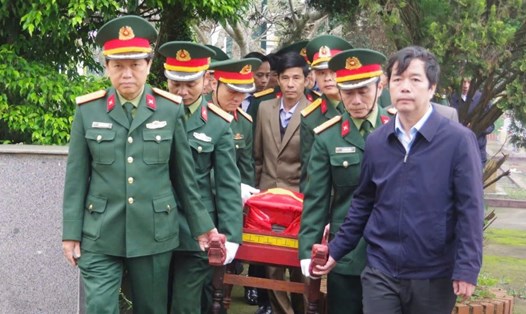On March 24 and 25, Ha Tinh Provincial Police coordinated with the Department of Administrative Management of Social Order (Ministry of Public Security) to collect DNA samples for relatives of unidentified martyrs in the entire Ha Tinh province.
Among those who came to collect DNA samples, many were mothers of weak old martyrs, over 90 years old.
At the model collection point in Ha Tinh City, Hoang Thi Chut's mother (99 years old, from Tuong Son Commune, Ha Tinh City) said that her son, Nguyen Viet Trinh (born in 1954), joined the army, participated in the fight and died on the battlefield in Quang Tri in 1974 when he was only 20 years old.
Recently, the family has gone everywhere to find Mr. Trinh's grave but there is no information yet. Now that the police have organized a DNA sample collection of martyrs' relatives whose identities have not been determined, Mrs. Chut has come to let the police collect samples in the hope that one day they will find her child's grave.
Another case was the mother of Truong Thiep (96 years old, residing in Thach Dai commune, Ha Tinh city) who also came to collect DNA samples in the hope of soon identifying the martyr's son, Nguyen Van Nhi (born in 1954), who died in 1974 in Binh Duong province.
Mr. Dang Van Dung - Deputy Director of the Department of Home Affairs of Ha Tinh - said that collecting samples, assessing and integrating DNA information of martyrs' relatives during the process of building a citizen identification database is considered an important solution, applying scientific advances to increase the effectiveness of identifying the remains of those who have passed away.
Currently, there are still about 500,000 martyrs unidentified nationwide, of which 200,000 remains have not been collected and 300,000 remains have been buried but lack information. Ha Tinh alone still has nearly 12,000 martyrs whose identities have not been determined.

According to Mr. Dung, taking DNA samples from martyrs' relatives, especially from martyrs' mothers, is very important, as soon as possible, the opportunity will be lost. Because currently, the mothers of martyrs are old and weak, with an average age of 90.
To solve this problem, the Ministry of Public Security is developing an identification database with integrated DNA data and has proposed to the Government a policy of analyzing DNA information for all relatives of martyrs whose information has not been determined to create a large database of relatives' DNA to serve the search for information on the remains of martyrs whose information has not been determined.
With this data warehouse, searching and verifying relatives will be easier and more accurate; it is an opportunity for families to identify the identities of past martyrs with unknown information.











